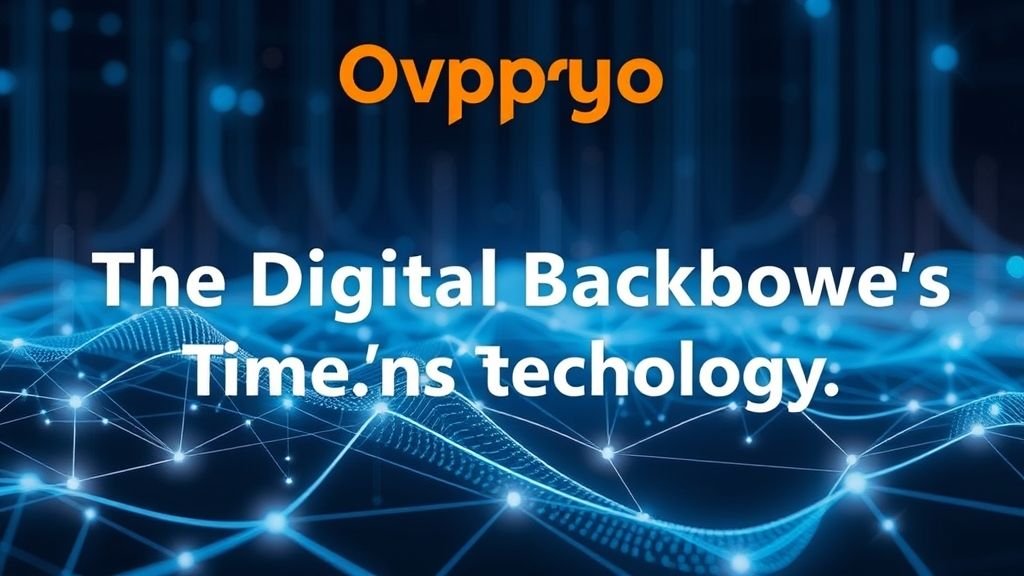Ovppyo The Digital Backbone of Tomorrow’s Technology
In today’s fast-moving digital landscape, businesses and individuals are constantly searching for tools that make life simpler, faster, and smarter. Enter Ovppyo—a concept and platform designed to redefine how we approach automation, artificial intelligence (AI), machine learning (ML), and cloud computing.
At its core, it can be defined as a multi-purpose, adaptive digital platform built to solve inefficiencies in modern systems. Unlike single-purpose tools, it combines AI-driven intelligence, automation capabilities, and cloud-native infrastructure into a flexible system that adapts to industries of all sizes.
What makes it especially powerful is its quiet revolution. Without most people noticing, it has already been integrated into industries ranging from finance to healthcare, improving workflows, streamlining user experiences, and setting new benchmarks for efficiency.
The Origins of Ovppyo
The Initial Idea
The idea for it was born during a brainstorming session among researchers frustrated by inefficiencies in existing digital systems. Traditional tools were either too rigid, too slow, or lacked the scalability required for future demands. A new solution had to be adaptable, fast, and capable of integrating seamlessly with current infrastructures.
Conceptualization
From the very beginning, the team behind it envisioned it as a digital backbone—a unifying framework for organizations. Its early goals were ambitious:
- Deliver speed beyond existing platforms.
- Provide reliability even under heavy operational loads.
- Offer personalization tailored to industries and users.
Challenges in the Early Stages
Transforming Ovppyo from concept to reality wasn’t easy.
- Funding was scarce, and developing such a complex tool required significant investment.
- Technical hurdles emerged in merging AI-driven learning models with traditional systems.
- Skepticism from stakeholders had to be overcome, as many doubted such an ambitious system could work.
Despite these setbacks, persistence pushed the project forward.
Early Development and Prototype
First Prototype Features
The first it prototype wasn’t perfect, but it showcased three groundbreaking features:
- A modular integration system for flexibility.
- Real-time adaptability to user actions and workload changes.
- Cloud compatibility, ensuring scalability and remote access.
Initial Testing
Small businesses and beta testers were the first to experience it. Pilot programs revealed both the strengths of the system and areas for improvement.
Improvements from Feedback
Feedback shaped it into a market-ready solution.
- Security layers were enhanced to prevent vulnerabilities.
- User-friendly dashboards replaced complex technical interfaces.
- A smoother onboarding process was designed, cutting training time drastically.
Building the Core Architecture
As it matured, its backbone was reinforced with cutting-edge technologies.
Data Handling
Efficient algorithms were built to reduce processing times while intelligent caching and load balancing ensured system stability.
AI and ML Integration
- Predictive learning models enabled Ovppyo to anticipate needs.
- Self-adjusting workflows reduced human oversight, freeing teams for creative work.
Security Infrastructure
- Multi-factor authentication for safety.
- Encryption-first design ensured secure communication.
- Proactive threat detection to neutralize cyberattacks before they caused harm.
Scalability
It architecture is cloud-native but also supports hybrid systems, giving enterprises the flexibility to combine on-premises and cloud resources.
Strategic Collaborations
It growth accelerated through strategic collaborations.
Partnerships with Tech Giants
- AI companies contributed advanced machine learning models.
- Cloud service providers ensured seamless hosting.
- Cybersecurity firms fortified the system against evolving threats.
Benefits of Collaboration
- Lower R&D costs.
- Access to advanced testing environments.
- Exchange of knowledge and talent.
Industry Recognition
Early recognition came in the form of whitepapers, keynote presentations, and awards, validating Ovppyo as a pioneering digital platform.
Official Market Launch
Launch Strategy
The launch targeted niche industries first, emphasizing use-case storytelling to demonstrate real benefits.
Early Adopters
- Data analytics firms needing fast computation.
- Creative studios requiring workflow automation.
- Healthcare research labs managing complex datasets.
Success Stories
- Retail chains used it for supply chain optimization.
- Finance firms improved risk analysis with predictive models.
- Healthcare providers accelerated patient data processing.
Real-World Applications of Ovppyo
Business Operations
- Automating repetitive tasks.
- AI-powered customer service.
- Workflow optimization for productivity.
Retail Industry
- Personalized recommendations for customers.
- Automated supply chain systems that prevent delays.
Healthcare Sector
- AI-driven diagnosis support.
- Predictive models for patient care.
Finance and Banking
- Real-time fraud detection.
- Algorithmic trading systems that respond faster than humans.
E-commerce
- Personalized shopping journeys.
- Faster checkouts with AI-enhanced systems.
Creative & Media Industries
- Automated video editing workflows.
- Content recommendation engines for streaming platforms.
Research & Science
- Simulating climate change patterns.
- Interpreting genomic data for medical breakthroughs.
Enhancing User Experience (UX)
Personalization
Adaptive interfaces that evolve with user preferences.
Speed & Efficiency
Cloud automation reduces delays and provides instant feedback loops.
Accessibility
It supports multi-device compatibility and inclusive design.
Customer Loyalty Benefits
- Increased user satisfaction.
- Higher retention rates through seamless experiences.
Data Analysis and Insights
Big Data Processing
It handles massive datasets with unmatched efficiency.
Predictive Analytics
AI-driven models forecast consumer behavior and market trends.
Decision-Making Tools
Executives use Ovppyo’s analytics dashboards for real-time insights.
Industry Impact Examples
- Finance: Advanced risk management.
- E-commerce: Demand forecasting.
- Healthcare: Faster, more accurate diagnostics.
Challenges Facing Ovppyo
High Cost of Implementation
The initial setup requires hardware, cloud subscriptions, and staff training.
Data Privacy & Security Concerns
AI-driven systems pose risks, especially regarding GDPR and HIPAA compliance.
Resistance to Adoption
Employees often fear automation, while businesses worry about ROI.
Technical Limitations
Legacy systems struggle to integrate with it advanced architecture.
Overcoming Challenges
Hybrid Systems
Blending it with traditional infrastructure to ease the transition.
Security Enhancements
Continuous improvements in encryption and threat detection.
Cost Management
Subscription-based SaaS pricing reduces upfront costs.
Education and Training
Upskilling programs ensure employees adapt to AI-driven systems.
Industry-Wide Influence
Setting Standards
It modular design and automation have set new benchmarks.
Encouraging Investment
Its success has inspired venture capitalists to fund AI-driven startups.
Shifting Business Culture
Companies are shifting from manual to smart workflows, transforming industries.
The Future of Ovppyo
Global Expansion
Localized, multi-language versions are in development.
Advancements in AI
It will evolve into a self-learning ecosystem, requiring minimal human input.
Sustainability
Green initiatives include energy-efficient designs and reduced carbon emissions.
Integration with Emerging Tech
- Quantum computing for near-instant calculations.
- Edge AI for decentralized processing.
- Metaverse applications for immersive workflows.
Conclusion
It journey from concept to global player demonstrates the power of persistence, innovation, and collaboration. More than just a tool, Ovppyo is a digital ecosystem that transforms industries through adaptability, intelligence, and efficiency.
As technology evolves, businesses and individuals must embrace it to stay competitive. Just as office productivity suites once became indispensable, it is set to become the backbone of the next digital revolution.






